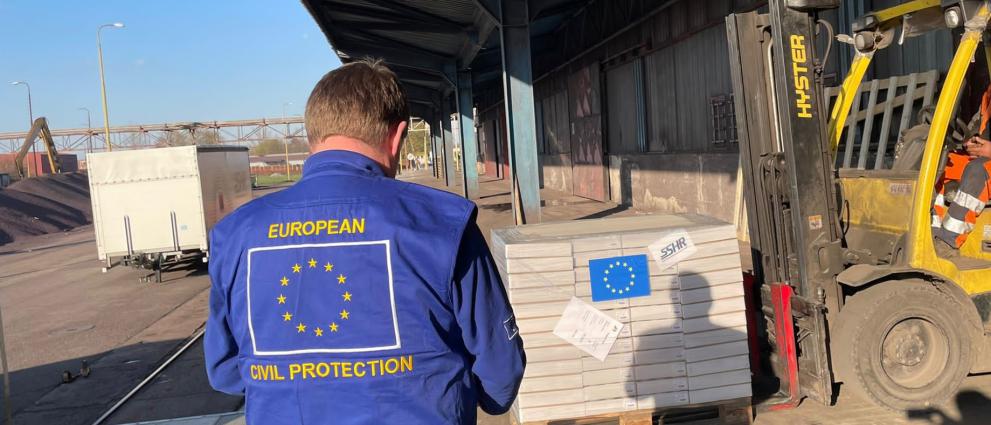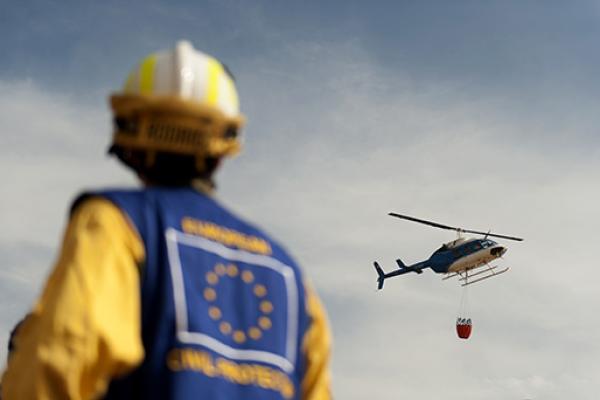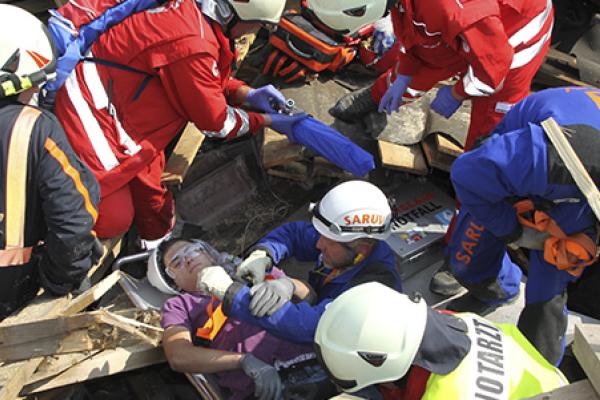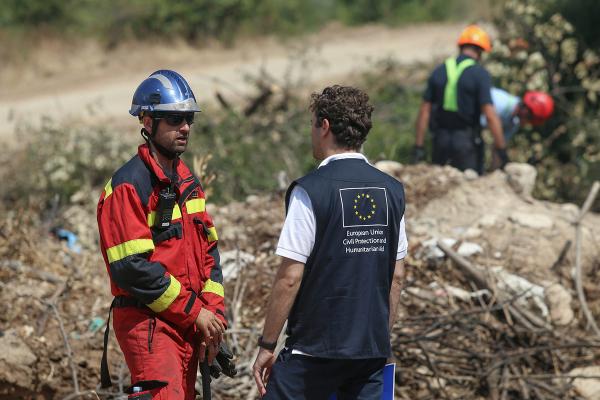
Today, the European Commission published the results of the Special Eurobarometer measuring public opinion about European civil protection actions in the Member States. Results show a strong consensus among the citizens of the European Union that civil protection activities should be coordinated across the EU.
An overwhelming majority of respondents (94%) in the 27 EU Member States thinks that when a disaster strikes in an EU country that is too big to deal with on their own, other EU countries should provide help. Nearly the same number (91%) are supportive of the EU helping any country in the world affected by a disaster.
The survey results show clear support for the EU's role in crisis management, with 9 in 10 respondents stating that it is important that the EU helps coordinate the response to disasters in the EU and other countries. According to the survey, also 9 in 10 Europeans agree that coordinated EU action should be increased to deal more effectively with disasters and crises in the future. The proportion of EU citizens who want a stronger role has increased by 6 percentage points since 2020, from 84% to 90%.
Citizens' desire to increase the disaster resilience of Europe is matched by the EU Disaster Resilience Goals adopted in 2023. The European Commission and the EU Member States have jointly identified five key areas to do more together to prevent and prepare for disasters. The 5 areas are anticipating and preparing for risks, enhancing early warnings, scaling up response capacities and securing robust civil protection systems.
The 5 EU disaster resilience goals will serve as a compass for policy and investments that help authorities make better-informed decisions and protect citizens, livelihoods, and the environment.
Commissioner for Crisis Management Janez Lenarčič said: "I am glad to see that the majority of citizens agree that coordinated EU action in dealing with major disasters is more effective than trying to tackle them alone. The recent results of the Eurobarometer opinion survey only contribute to our determination to further strengthen the EU Civil Protection Mechanism – one of the most agile EU mechanisms ensuring swift assistance in protecting people when a disaster strikes in the EU but also beyond. Furthermore, together with EU Member States we continue to develop the EU Disaster Resilience Goals adopted one year ago on this day, so that across Europe we are also collectively better prepared for future disasters."
Background
The EU Civil Protection Mechanism aims to strengthen cooperation between the 27 EU countries and 10 Participating States (Iceland, Norway, Serbia, North Macedonia, Montenegro, Türkiye, Bosnia and Herzegovina, Albania, Moldova and Ukraine) on civil protection to improve prevention, preparedness, and response to disasters.
When an emergency overwhelms the response capabilities of a country in Europe and beyond, it can request assistance through the Mechanism. The European Commission plays a key role in coordinating the disaster response worldwide. Since its inception in 2001, the EU Civil Protection Mechanism has been activated for more than 600 emergencies and crises inside and outside the EU.
In February 2023, the European Commission adopted a Recommendation and a Communication to establish common goals to boost disaster resilience in the areas of civil protection. This includes ways to better prepare European countries for natural hazards, including earthquakes, floods and forest fires to name a few.
The European disaster resilience goals aim to improve the capacity of the EU, its Member States and Participating States to the EU Civil Protection Mechanism to anticipate and better withstand the effects of future major disasters and emergencies.
Details
- Publication date
- 8 February 2024
- Author
- Directorate-General for European Civil Protection and Humanitarian Aid Operations (ECHO)




